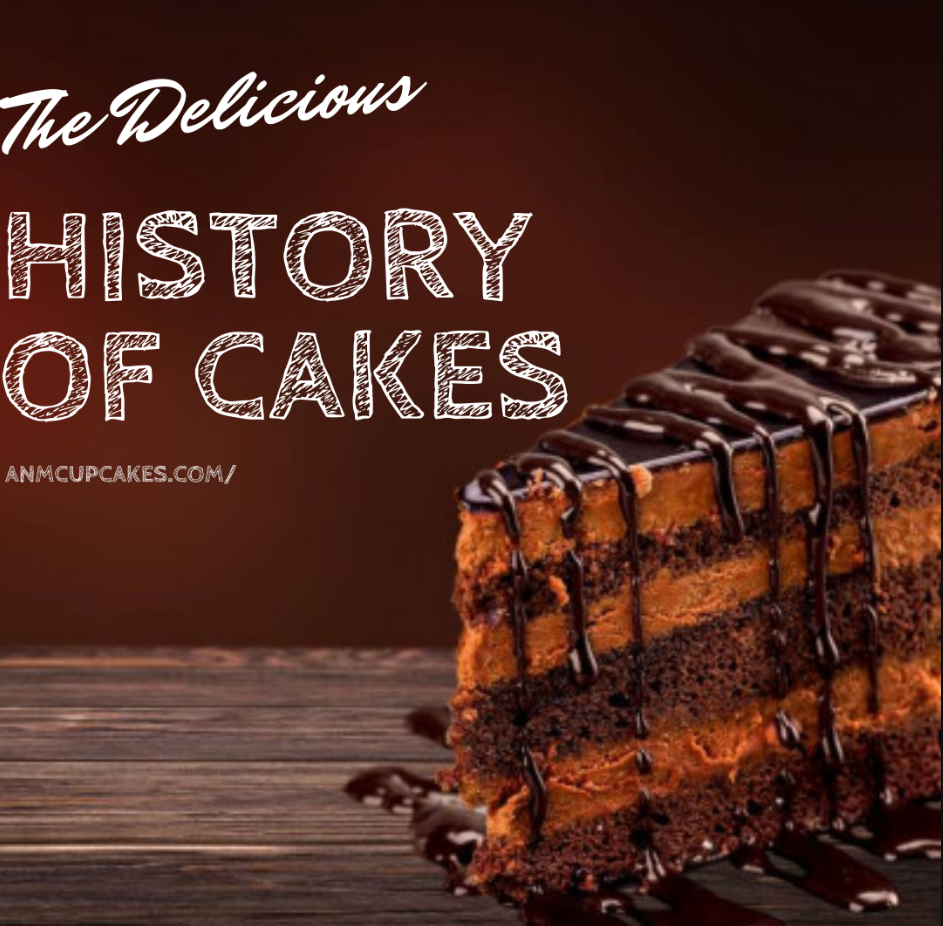For those of us with a sweet tooth, cakes are unquestionably the best dessert of all time. It’s the one sweet that most people connect with happy occasions, and it might even arouse feelings of nostalgia. Also, there’s a flavour for everyone’s taste, even if you don’t like chocolate (although we have to respectfully disagree here). Cake has a deep and intricate history that you might not be aware of. Let’s dive into the history of cakes.
The Journey from Breads to Cakes
In the past, bread and cakes were frequently mistaken for each other and didn’t have a lot of differentiating characteristics. It all began with bread, and ingredients like butter, eggs, sugar, and honey. This eventually led to the development of sweet cake-like foods (sweet bread). As yeast was used to leaven the bread, it was dubbed sweet bread.
The method of adding yeast as a leavening agent was probably established by the Romans. The addition of whipped eggs to the batter was subsequently adopted by Italians in the 16th century. Even while both procedures resulted in lighter cakes, they were labour-intensive, and therefore baking powder and bicarbonate of soda were created by the mid-1800s. Over time, the Greeks gave us cheesecakes, while the French gave us gateaux.
A High-Class Indulgence in Medieval Europe
Baking used to be considered a ritzy affair because of the high cost of the ingredients and the rarity of an oven in the average household. The rich preferred fine dusted bread and cakes, while the poor had to resort to rye and black bread. Ovens were once the exclusive property of the rich, who had them built in their own backyards. Moreover, in the 18th century, cake-eating social gatherings were developed. This involves the introduction of tea parties at home and bragging about one’s tea intake and all the trinkets that go with it.
As globalisation developed in the 16th century, ingredient prices fell, recipes were written, and by the 19th century, a cheap oven was available. This opened up baking to the masses, especially the middle class! Thus, cakes became something that people made and purchased when they had extra time and money at hand.
Here’s a fun fact: around 350 BC, a Sicilian Greek named Archestratus wrote the first cookbook, titled ‘Hedypatheia,’ which advises on what meals to consume throughout the Mediterranean region.
The Introduction of Birthday Cakes
The celebration of birthdays is believed to have been “invented” by the ancient Egyptians. Egyptians considered pharaohs to be gods after they were crowned. Hence, the day of their coronation was a significant event. Then they become deities.
The ancient Greeks adopted the custom, but they had the foresight to provide a sweet treat to round off the celebration. As a result, they cooked mooncakes to honour Artemis, the moon goddess. They adorned the cakes with lighted candles to give them the appearance of the moon shining brightly. As a result, it’s customary to set birthday cakes ablaze with candles.
The Significance of Cakes in Human History
Cakes don’t have much nutritional value, but symbolically, they are hugely significant. Cakes were either difficult to make or just the last thing on people’s minds for so long in human history when they had so little to eat. However, it seems that having something sweet, unique, and not simply a snack was critical. It served as a focal point for social gatherings, as well as family get-togethers.
So, if you’re looking for high-quality and extremely scrumptious cakes to elevate any occasion or just a normal day, visit us at A&M Cupcakes or order your preferred flavour from our website today!

